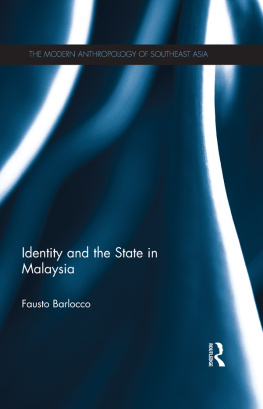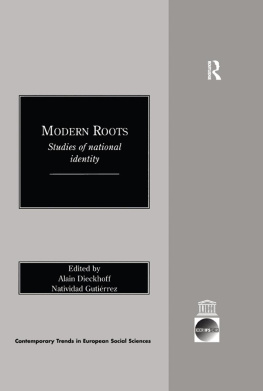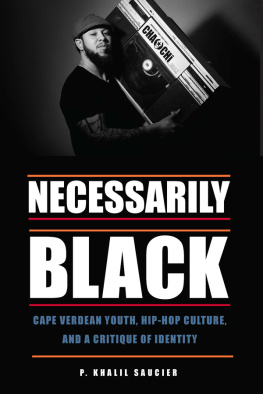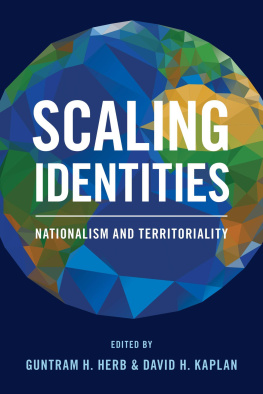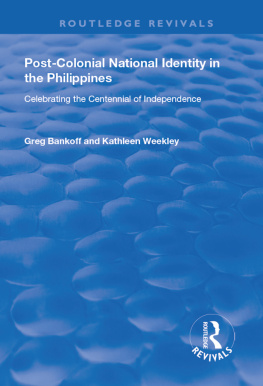Identity and the State in Malaysia
Using the case study of the Kadazan of Sabah, a region in the Malaysian section of Borneo, this book examines national, ethnic and local identities in post-colonial states. It shows the importance of the connection between lived experience and identity and belonging, and by doing so, provides a deeper and fuller explanation of the apparently contradictory conflict between different collective forms of identification and the way in which they are employed in reference to everyday situations.
Based on ethnographic fieldwork and historical analysis, the book reconstructs the development of the cultural forms and labels associated with the collective identities it studies. The author employs an approach that sees collective identification as an expression of everyday practices and that stresses the importance of participation and familiarity between forms of identification and lived experience. In this context, he considers anthropological debates about state-minorities relations and issues of dignity and respect.
Explaining state-minority relations in Malaysia and more generally in other post-colonial realities, the insights presented are highly relevant to other cases of conflicting allegiances and identity politics in settings of post-colonial nation-building.
Fausto Barlocco received his PhD from Loughborough University, UK. He has taught Social Science at Nottingham Trent International College, UK, and is now an independent researcher.
The Modern Anthropology of Southeast Asia
Editors
Victor T. King, University of Leeds
Michael Hitchcock, University of Chichester
The books in this Series incorporate basic ethnographic description into a wider context of responses to development, globalisation and change. Each book embraces broadly the same concerns, but the emphasis in each differs as authors choose to concentrate on specific dimensions of change or work out particular conceptual approaches to the issues of development. Areas of concern include: nation-building, technological innovations in agriculture, rural-urban migration, the expansion of industrial and commercial employment, the rapid increase in cultural and ethnic tourism, the consequences of deforestation and environmental degradation, the modernisation of tradition, ethnic identity and conflict, and the religious transformation of society.
The Modern Anthropology of Southeast Asia
An Introduction
Victor T. King and William D. Wilder
The Changing Village Environment in the Southeast
Applied anthropology and environment reclamation in the northern Philippines
Ben J. Wallace
The Changing World of Bali
Religion, society and tourism
Leo Howe
Modernity and Malaysia
Settling the Menraq forest nomads
Alberto Gomes
The Orang Suku Laut of Riau, Indonesia
The inalienable gift of territory
Cynthia Chou
Southeast Asian Perspectives on Power
Liana Chua, Joanna Cook, Nicholas Long and Lee Wilson
Sex, Love and Money in Cambodia
Professional girlfriends and transactional relationships
Heidi Hoefinger
Identity and the State in Malaysia
Fausto Barlocco
First published 2014
by Routledge
2 Park Square, Milton Park, Abingdon, Oxon OX14 4RN
and by Routledge
711 Third Avenue, New York, NY 10017
Routledge is an imprint of the Taylor & Francis Group, an informa business
2014 Fausto Barlocco
The right of Fausto Barlocco to be identified as author of this work has been asserted by him/her in accordance with sections 77 and 78 of the Copyright, Designs and Patents Act 1988.
All rights reserved. No part of this book may be reprinted or reproduced or utilised in any form or by any electronic, mechanical, or other means, now known or hereafter invented, including photocopying and recording, or in any information storage or retrieval system, without permission in writing from the publishers.
Trademark notice: Product or corporate names may be trademarks or registered trademarks, and are used only for identification and explanation without intent to infringe.
British Library Cataloguing in Publication Data
A catalogue record for this book is available from the British Library
Library of Congress Cataloging in Publication Data
Barlocco, Fausto, author.
Identity and the state in Malaysia / Fausto Barlocco.
pages cm. -- (The modern anthropology of Southeast Asia)
Includes bibliographical references and index.)
1. Dusun (Bornean people)--Ethnic identity. 2. Identity politics--Malaysia--Sabah. 3. Ethnology--Malaysia--Sabah.
4. Sabah--Ethnic relations. 5. Malaysia--Ethnic relations. 6. National characteristics, Malaysian. 7. Malaysia--Cultural policy. I. Title.
DS597.335.D88B37 2014
305.80095953--dc23
2013023305
ISBN: 978-0-415-82096-7 (hbk)
ISBN: 978-1-315-85699-5 (ebk)
Typeset in Times
by Taylor & Francis Books
A tutti quelli che mi hanno sostenuto durante la scrittura di questo libro
A tutti quelli nonostante i quali lo ho terminato
Contents
This book is not only the result of my work, but also of the help and support of many people without whom it would have never come into existence.
First of all I would like to thank all the residents of Kituau and all those who helped me in many ways during my stay in Sabah from whom I have learnt more than I could hope and to whom I will always be grateful. In particular the family with whom I stayed: Jacobina, Jaunis, Augusta and the children. This book is as much yours as mine. Kotohuadan tagazo-gazo!
The fieldwork, and therefore the taking shape of the thesis and then the book as it is, would have been impossible without the help of many people in Sabah, who gladly showed me the best of Sabahan hospitality. Among them I would like to thank first of all Jacqueline Pugh-Kitingan, who gave me priceless advice and support and who introduced me to many key informants and contacts. Among these were Judeth John Baptist and Robin Lojiwin of Sabah Museum, who helped me to select a suitable location and a place to stay for the fieldwork, and of whom I was a very privileged guest. I am also indebted to Puan Angrick, Rafael Monuil, Peter Lidadun, Marcel Leiking and Herman Luping for sharing their inside knowledge and experiences of Sabahan cultural production and politics.
The research on which this book is based was part of my Ph.D. at Loughborough University, where I had the support of my supervisors, Sarah Pink and, as an external, John Postill, and helpful suggestions from Graham Murdock, Sabina Mihelj and Karen OReilly. I am also indebted to the Social Science Department at Loughborough University for financial support to my research, together with a small grant awarded by the ASA/Radcliffe-Brown Trust.
I would also like to thank the external examiner of the thesis, Victor Terry King, for his useful recommendations for further improvement and for his encouragement to transform my doctoral thesis into this book, as well as for the help and support he has given me as Series Editor of the Modern Anthropology of Southeast Asia series at Routledge.
I also would like to thank for their suggestions and help, George Appell, James Ongkili, Clifford Sather, Shamsul A. Baharuddin.

